Cold Weather PWC Riding Tips
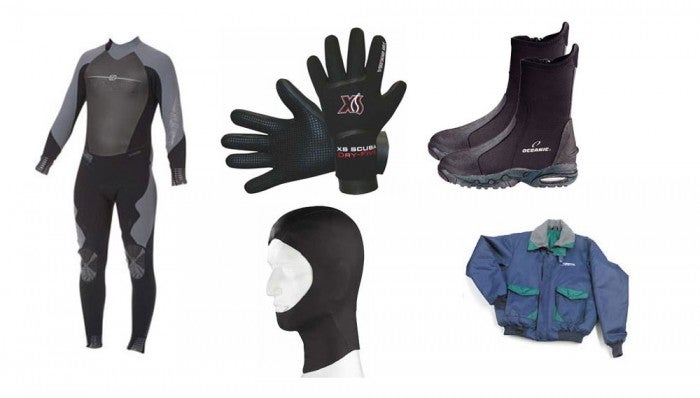
How to ride in comfort well into the cooler months
Just like that, Labor Day has come and gone. For a lot of PWC riders, that means the summer — or should I say, the primary riding season — has come and gone as well. Skis are being relegated to the garage, gear is being stowed for a long winter’s nap, and thoughts are turning elsewhere.
That’s too bad, because some of the best PWC riding can be had in the fall months, even all year long if you live in southern states. With cooler temps come not only the changing colors of Fall, but also a changing waterway. What was once crowded is now peaceful, and what was once wave-strewn is often calm. It’s a great time to be out there enjoying your craft, rather than simply sitting on the couch and dreaming about it.
Cold weather, however, demands a little more than your typical selection of riding gear. Here’s the crash course…
Reach For The Neoprene
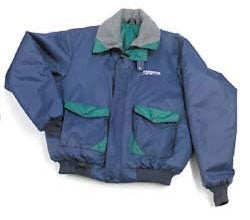 Stearns Explorer Flotation Jacket ($229.99).
Stearns Explorer Flotation Jacket ($229.99).First consideration? Learn to dress the part. A wetsuit – a full wetsuit – should be first on the list. Look closely at manufacturer’s suggested temperature range, and remember that thicker (beyond 3mm) is usually better. More neoprene, and less Lycra, between you and the outside world means your body will more easily warm that thin layer of water trapped between rubber and skin, and keep it warmer longer. Check out suits like the Jet Pilot Chamber 4/3mm Fullsuit (http://www.jetpilot.com/), which offer sealed seams and more water-resistant neoprene formulations. Neoprene touring coats are also popular, as are PFD jackets, which combine your life jacket with a winter-style coat. Many PWC manufacturers offer touring coats in their apparel line. For a “float coat,” check out Stearns’ Explorer Flotation Jacket at West Marine (http://www.westmarine.com/).
Really plan on extending your season? Consider a dry suit. It will keep water out, and allow you to layer underneath. Try wicking-type ski or snowboard underwear as your base layer. Just remember, in milder temps a dry suit can make you sweat, so save the hard-core stuff for the hard-core temps. A dry suit won’t breathe, so the heat you build up within will stay pretty much trapped. Most PWC wetsuit manufacturers have gotten out of the drysuit business, but catalog giants like Bart’s (http://www.bartswatersports.com/) still carry a decent selection.
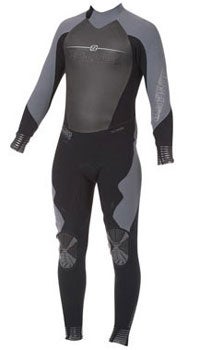 Jet Pilot Chamber Elite 4/3mm Fullsuit ($339.99)
Jet Pilot Chamber Elite 4/3mm Fullsuit ($339.99)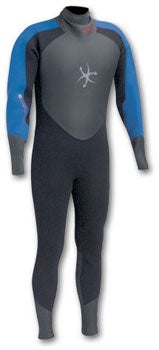 SkiWarm Men’s SWS Sahara Drysuit ($339.99)
SkiWarm Men’s SWS Sahara Drysuit ($339.99)Protect The Parts
Don’t forget your head, hands, and feet. Like your parents probably told you every winter as a kid, you lose a lot of heat through your extremities. They’ll also be more exposed to the cold. Your feet may be in a wet footwell, your hands are exposed to the wind and splash at the handlebars, and your head is totally vulnerable to the elements.
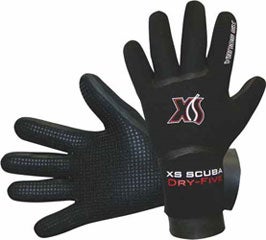 5mm Dry Five Pyrostretch Dry Gloves ($59.95)
5mm Dry Five Pyrostretch Dry Gloves ($59.95)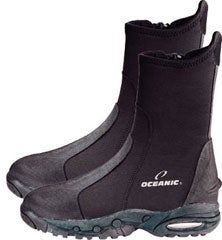 6.5mm Neo Classic Heavy Duty Zipper Boots ($59.95)
6.5mm Neo Classic Heavy Duty Zipper Boots ($59.95)Apply the thicker wetsuit concept to your gloves and booties. Many wetsuit manufacturers make thicker gloves for cold-weather riding. For your feet, grab a pair of neoprene dive socks, and wear them as a base layer. Over the top, go with neoprene booties, rather than lightweight ride shoes. Again, they’re warmer. Try Dive Inn (http://www.scubastore.com/) or Scuba.com for choices.
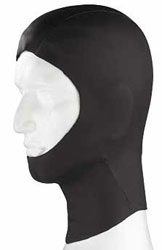 Body Guard Wetsuit Hood ($29.98)
Body Guard Wetsuit Hood ($29.98)As for your head, consider how aggressive you’ll be riding. If you don’t plan on ever going in, don a snowboard or ski beanie, or check a local bicycle shop for an ear-covering headband, like Pearl Izumi’s Therma Fleece Headband (http://www.pearlizumi.com/). If you think you’ll get wet, opt for a neoprene hood, like Bart’s Body Guard Wetsuit Hood (http://www.bartswatersports.com/) to lock in much of that heat. Even a helmet will often do the trick. In fact, hardcore northern riders will tell you a full-face helmet is one of the best methods to staying warm. Just make sure it won’t fill up with water should you fall!
Into The Cold
Yes, cold-weather riding takes a little more dedication, if only for the amount of gear you need to put on in order to survive. But as cold-weather enthusiasts will often tell you, those off-summer months can often be the best time of the year.
So gear up…and find out what you’ve been missing.
Related Reading
What To Look For in a PWC Wetsuit
Get PersonalWatercraft.com in your Inbox!
Like PersonalWatercraft.com on Facebook
Comments
Most Popular
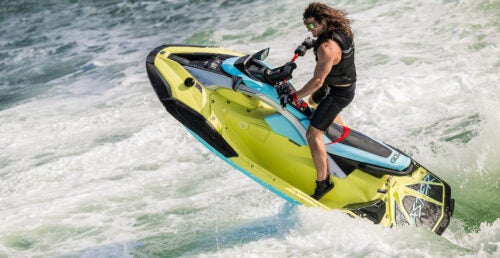
2025 Yamaha JetBlaster PRO 2-Up Review
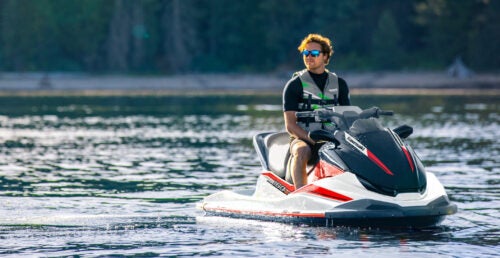
2024 Kawasaki Jet Ski STX 160X Review
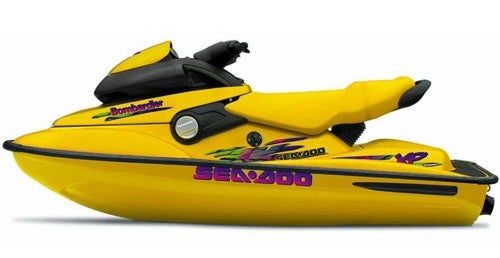
Remembering the Sea-Doo XP
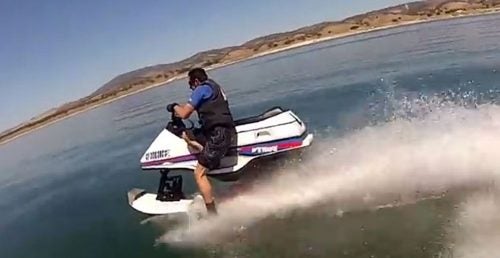
Whatever Happened to the Wetbike?
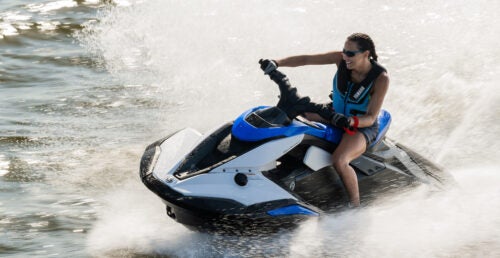
2025 Yamaha JetBlaster Review
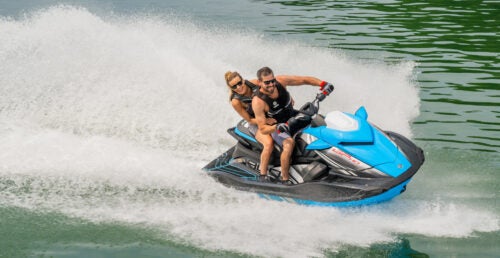
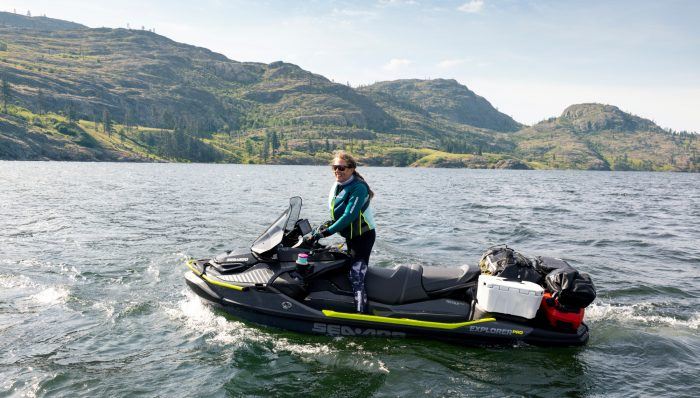
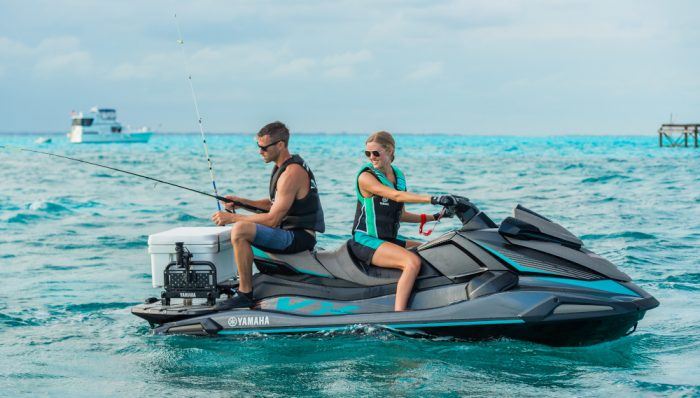
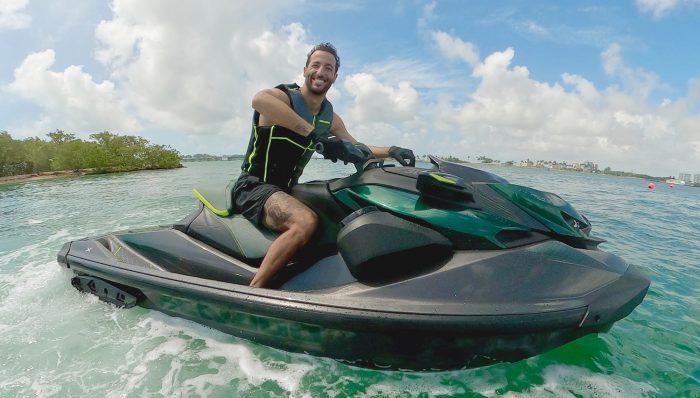

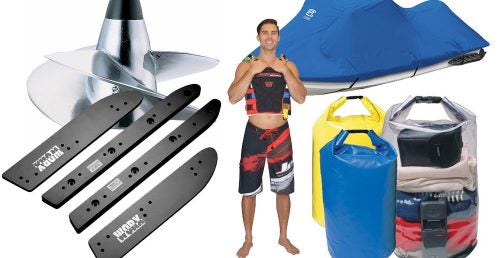
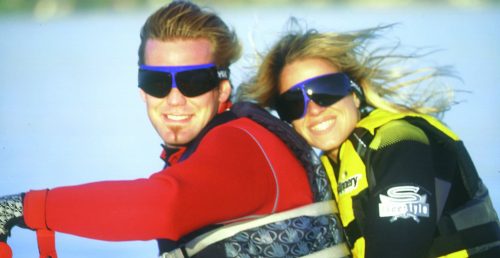


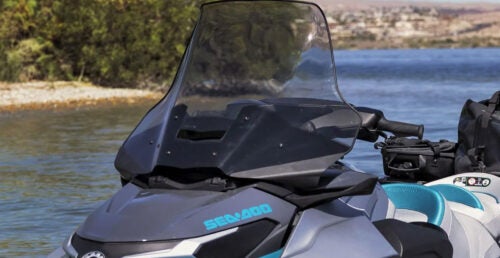
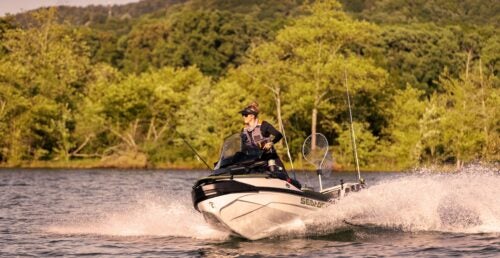


 Your Privacy Choices
Your Privacy Choices